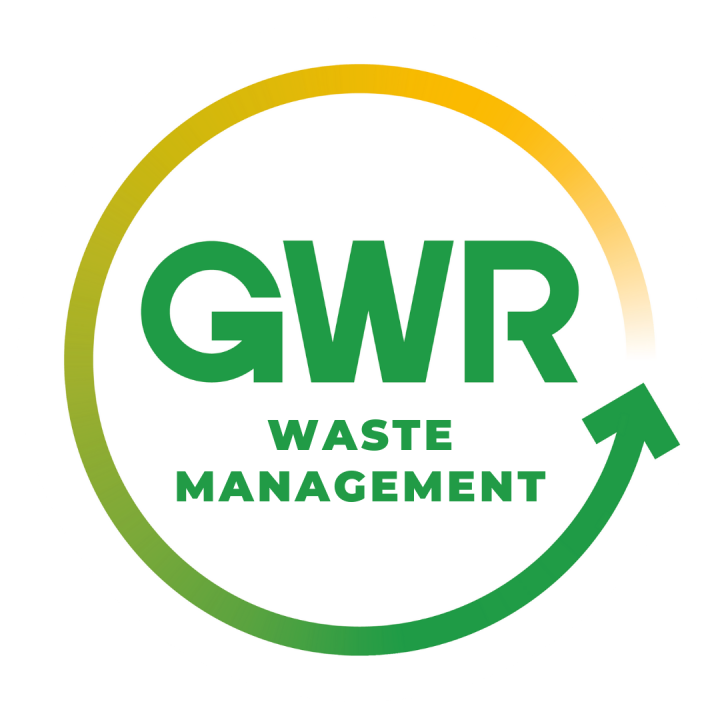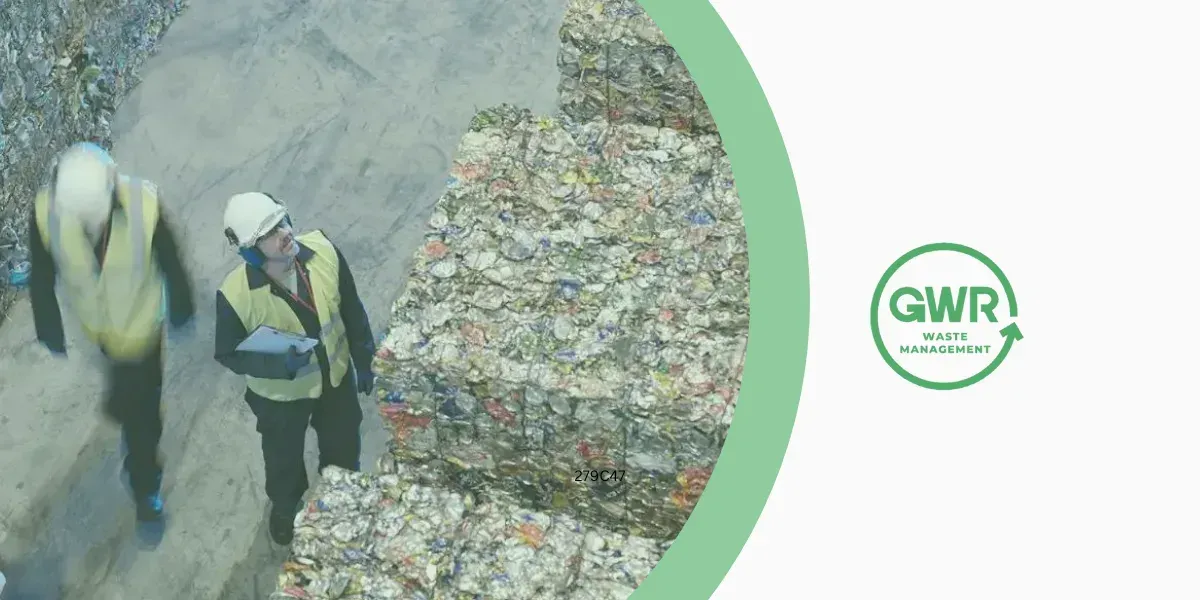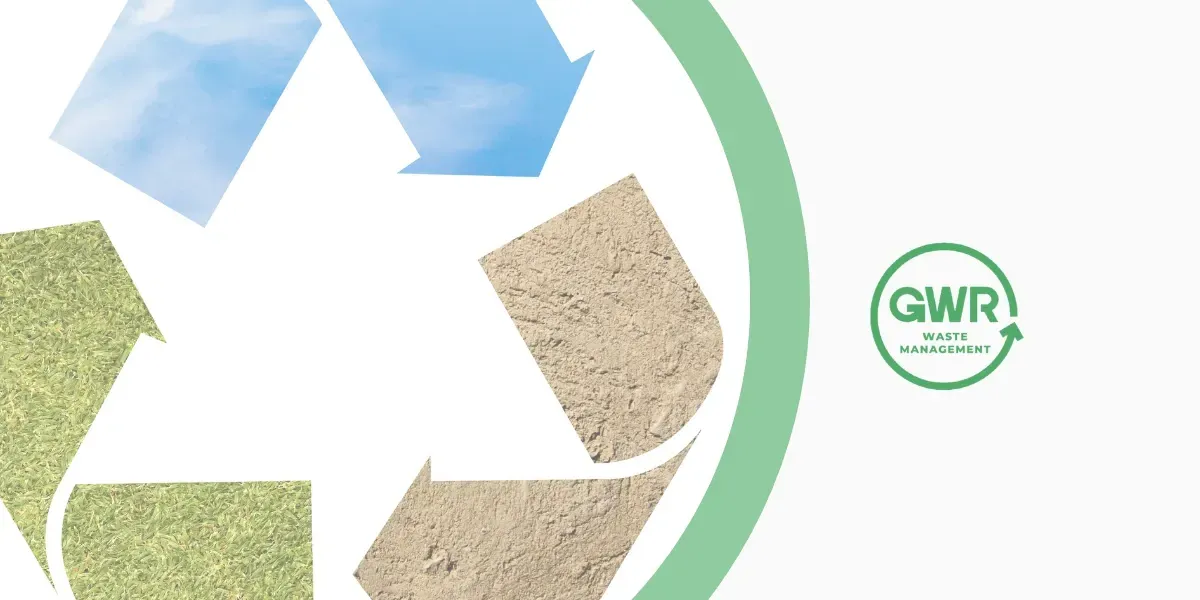What Commercial Bin Size Is Right For My Business?
For all businesses, understanding the various commercial bin sizes is crucial to comply with legislation, minimize environmental impact, and save money. In the UK, over 200 million tonnes of waste is produced annually, with a significant portion stemming from industry.
At GWR Waste Management, we’re dedicated to assisting businesses across the UK in achieving their sustainability goals through customized waste management solutions. As experts in waste management, we’ve helped numerous clients achieve zero waste to landfill.
In this blog, we delve into the different commercial bin sizes to help you determine the best fit for your business needs.
What Sizes Do Commercial Bins Come In?
Commercial bins primarily come in three types: wheelie bins, front-end loaders, rear-end-loaders and roll-on roll-off skips. Each type has its own ideal use case, depending on the business size and waste output.
Wheelie Bins
Wheelie bins are the most common choice for small to medium-sized businesses. They are easily maneuverable and can come with lockable lids to secure waste from weather and unauthorized access. Wheelie bins range from 240 to 1100 litres, making them suitable for businesses with identifiable waste streams, such as those in the hospitality sector.
Examples of Wheelie Bin Sizes:
240 Litre Wheelie Bins
- Capacity: 3-5 bags
- Dimensions: Height 1063mm, Width 575mm, Depth 713mm
- Suitable for: General waste, dry mixed recycling, cardboard & paper, glass, food
360 Litre Wheelie Bins
- Capacity: 5-7 bags
- Dimensions: Height 1098mm, Width 596mm, Depth 878mm
- Suitable for: General waste, dry mixed recycling, cardboard & paper, glass
660 Litre Wheelie Bins
- Capacity: 8-10 bags
- Dimensions: Height 1222mm, Width 1371mm, Depth 764mm
- Suitable for: General waste, dry mixed recycling, cardboard & paper
1100 Litre Wheelie Bins
- Capacity: 15-18 bags
- Dimensions: Height 1222mm, Width 1371mm, Depth 1085mm
- Suitable for: General waste, dry mixed recycling, cardboard & paper
Front and Rear End Loaders
These bins are intermediate in size, available in volumes of 6, 8, and 10 cubic yards. They are ideal for industries producing moderate to high levels of waste, such as manufacturing, where there are often off-cuts and discarded packaging. These bins can handle large volumes of cardboard or other dry-mixed recycling and have lockable lids for secure storage indoors or outdoors.
Roll-on Roll-off Skips
These are the largest bins available and are perfect for industrial or construction sectors. Sizes range from 6 to 35 cubic yards, capable of holding large quantities of general waste or unsorted scrap. For businesses generating substantial waste, an on-site compactor or baler can be a cost-effective addition to reduce the frequency of collections needed.
How to decide on the right Commercial Bin Size for your Business?
Choosing the right bin size involves considering your business's waste output and answering a few key questions:
What type of commercial waste does my business produce?
Identify the different waste streams your business produces. Different wastes require different bin sizes. For example, a building company will need larger bins than an office-based business. Additionally, some waste types, like clinical waste from private clinics or tattoo parlours, require specialized containers.
What amount of waste does my business produce?
Assessing your regular waste production is crucial for selecting the appropriate bin and determining collection frequency. A construction business will need large skips, while a retail business might require smaller bins.
Do I have the right amount of space available and accessibility?
Consider the space available at your site for storing waste. Larger sites can accommodate bigger skips, whereas office locations with space constraints might need smaller, more accessible bins.
Do I need to conduct a Waste Management Audit
Conducting a waste management audit is the best way to evaluate your waste streams, stay ahead of waste regulations, and introduce sustainability measures. GWR Waste Management offers a free waste audit to help you identify the types and amounts of waste produced, offering insights into improving waste management and selecting suitable bin sizes.
What is the Cost of Commercial Waste Bins
Renting a commercial waste bin and arranging collections involve several costs. It also can involve a lot of your valuable time arranging and managing all the logistics of this process. The 'duty of care' law mandates that businesses keep waste secure and handle it responsibly, necessitating a transfer note and certificate from the service provider, often incurring high admin fees. There are also charges for bin lifts and rental fees.
GWR Waste Management simplifies pricing with a straightforward one-price-per-empty solution. Our transparent billing, flexible services, and friendly team aim to make waste management as hassle-free as possible.
Commercial Waste Management Solutions
With over 35 years of combined experience, we are a waste management company committed to sustainable waste disposal and recycling practices. Our zero waste to landfill policy ensures that none of your waste will end up in a landfill site, which contributes to helping your business meet its environmental objectives while saving you time, hassle and money.
Why choose GWR Waste Management as your service provider?
- Only Pay for Collections
- Receive a Free Waste Audit from our industry professionals
- No Bin Rental Charges - receive your free bins and we will also deliver your bins to your address free of charge.
- Dedicated Customer Care - our support team will manage your entire waste management process from start to finish while you focus on wh
- No Admin Fees Or Hidden Costs
- Free Duty of Care
Get in touch for a
free no-obligation quote.















